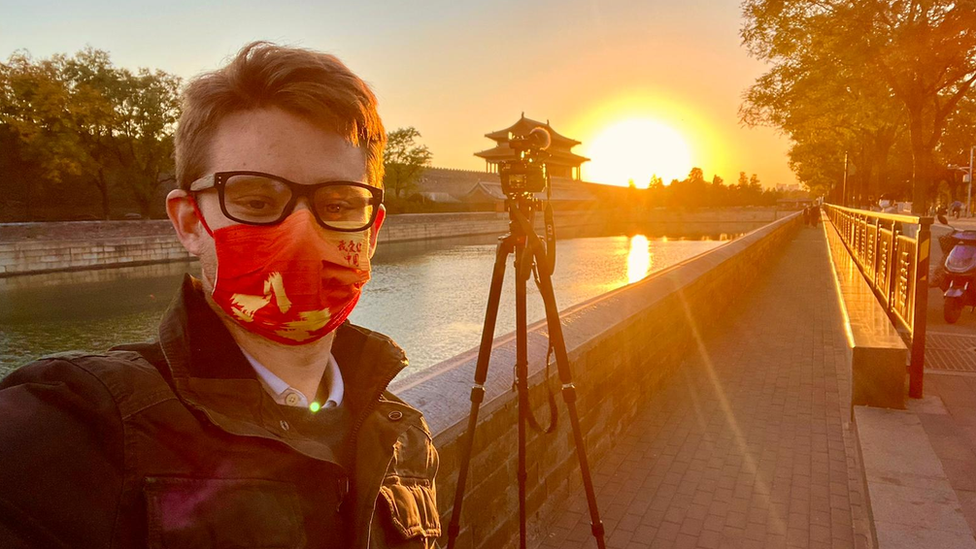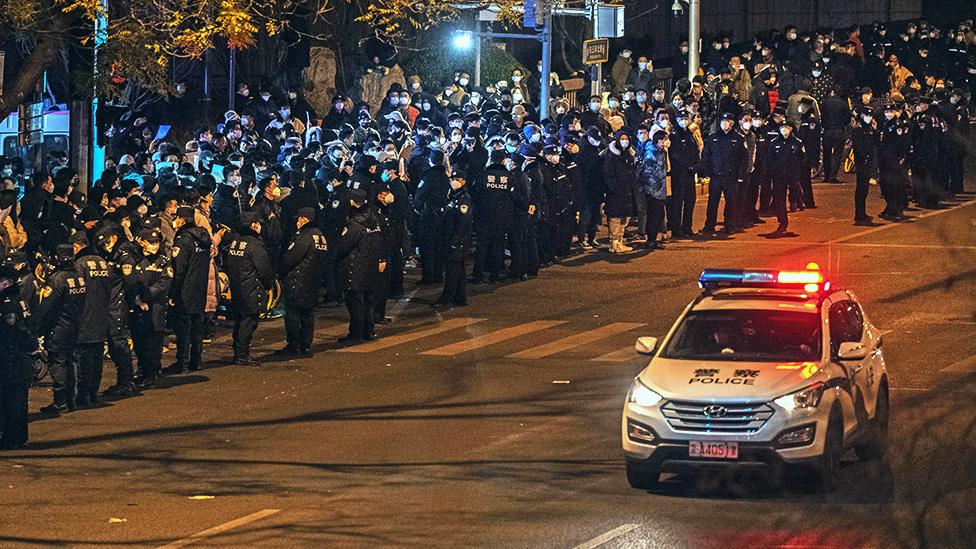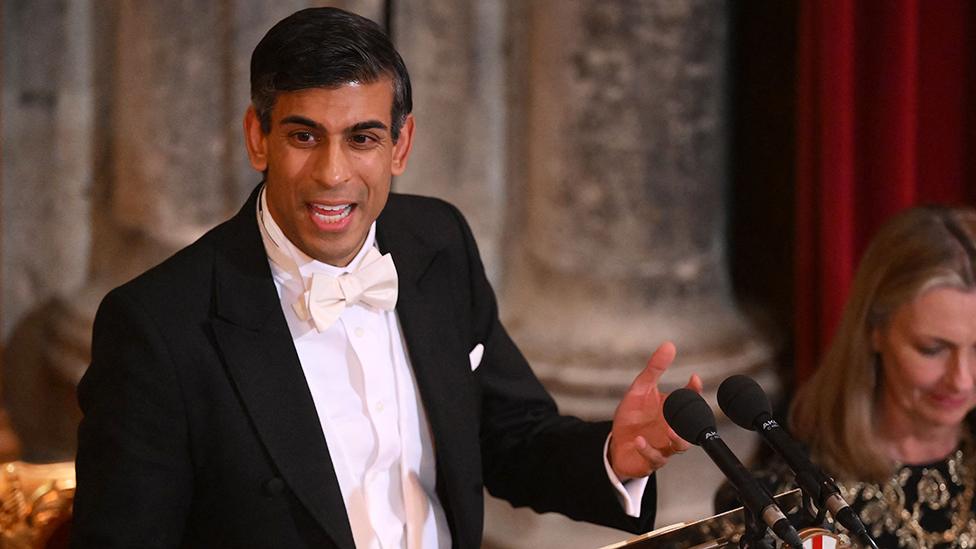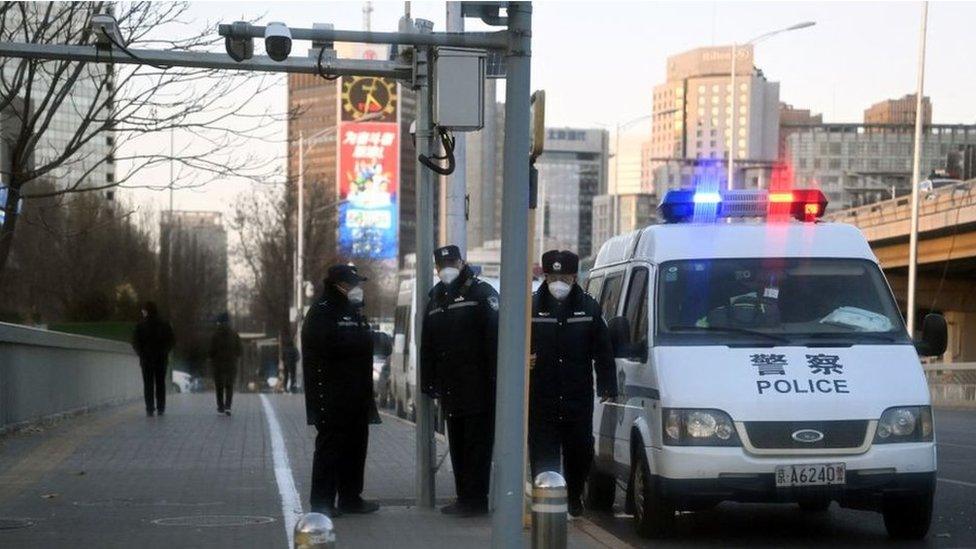China Covid protests: UK summons ambassador over journalist arrest
- Published
Watch: BBC journalist Ed Lawrence arrested covering China Covid protests
The Chinese ambassador to the UK, Zheng Zeguang, was summoned to the Foreign Office for a meeting following the arrest of a BBC journalist in Shanghai.
Ed Lawrence was beaten and briefly detained while covering anti-government lockdown protests on Sunday.
A Foreign Office source said this was "completely unacceptable".
The Chinese government said Mr Lawrence had not voluntarily presented his press credentials.
Mr Zeguang attended the Foreign Office on Tuesday afternoon.
Footage shared widely on social media showed several police officers grabbing Mr Lawrence and pinning him to the ground. The BBC said he was beaten and kicked by police officers, and then taken away in handcuffs.
The BBC has described the treatment of one of its journalists as "extremely concerning".
It said Chinese officials had claimed Mr Lawrence was arrested "for his own good in case he caught Covid from the crowd", but said this explanation was not "credible".
Foreign Secretary James Cleverly, who is currently in Romania, said the arrest was "deeply disturbing".
"Journalists must be able to do their job without intimidation," Mr Cleverly said.
Responding to an urgent question in the Commons, Foreign Office Minister David Rutley said the Chinese ambassador was being summoned to make clear the "unacceptable and unwarranted" nature of the arrest and to demand "a full and thorough explanation".
On Monday, China's foreign ministry spokesman said: "Based on what we learned from relevant Shanghai authorities, [Mr Lawrence] did not identify himself as a journalist and didn't voluntarily present his press credentials."
A Foreign Office source said: "Protests in China that involve criticism of the government and leadership are rare. That Chinese citizens who know the risks and consequences of such actions are doing it anyway should be a signal to the Chinese government to listen to their own people."
Labour's shadow foreign affairs minister Catherine West welcomed the ambassador being summoned.
"The robust response is a welcome change to the government's previous handling of Chinese overreach in Manchester," she told the Commons.
Police are currently investigating clashes outside the Chinese Consulate in Manchester last month, after allegations of assault against pro-democracy protesters.
Conservative MP Tim Loughton called for "clear consequences" for China's actions, asking: "When are we going to get serious about China?"

Ed Lawrence is a BBC journalist working in China
Protests against the Chinese government and its Covid lockdown policies have erupted across a number of Chinese cities after a deadly fire in the western region of Xinjiang killed 10 people last week.
Many believe residents could not escape the blaze in a locked-down apartment tower in the city of Urumqi because of Covid restrictions, although local authorities have disputed this.
Public anger over the tragedy - just the latest in a series of disasters blamed on Covid restrictions - escalated into street protests.
The diplomatic row comes after Prime Minister Rishi Sunak said the so-called "golden era" of relations with China was over.
In a speech at the Lord Mayor's Banquet in London on Monday, Mr Sunak said the closer economic tries of the previous decade had been "naive" but that China's significance in world affairs could not be ignored.
Mr Sunak has faced pressure from Tory backbenchers to toughen the UK's stance on China since he took over as prime minister last month.
Related topics
- Published28 November 2022

- Published29 November 2022

- Published29 November 2022
